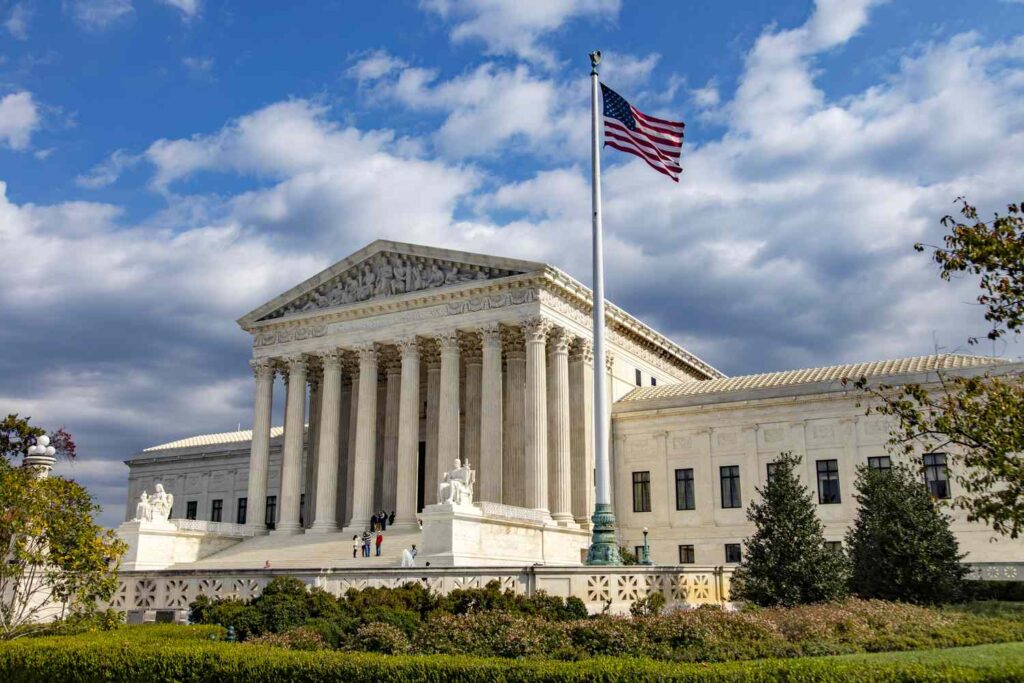Seizures Held Without Hearing Within a Reasonable Period. On October 30, 2023, the United States Supreme Court heard argument to determine whether due process requires a post-seizure, prejudgment hearing to challenge the government’s retention of property—a retention hearing—during a civil forfeiture proceeding. See Culley v. Marshall, 217 L. Ed. 2d 5, 92 U.S.L.W. 3063, _ S.Ct. _, 2023 U.S. Lexis 3462, 2023 WL 6377745 (Argument Heard October 30th, 2023).
Factual Background: Culley v. Marshall
For more than a year, Alabama deprived Halima Culley and Lena Sutton of their vehicles, without any judicial oversight: Sutton had loaned her vehicle to a friend, and police seized it when arresting him for trafficking methamphetamine; Culley bought her vehicle for her son to use at college, and police seized it when arresting him for possessing marijuana.
Neither Culley nor Sutton had done anything wrong. Both were “innocent owners.” Neither knew anything about any of alleged illegal activity.
The local police departments—”who stood to keep the cars upon forfeiture, or any money they might generate”—refused repeated requests from Culley and Sutton to release the vehicles.
“The consequences were devastating.” For Sutton, her vehicle was seized for fourteen months without a hearing. Sutton lost work, fell behind with her bills and missed mental health appointments. A simple “innocent owner” hearing may have ordered release of the vehicle immediately. See Brief for Petitioners.
Petitioner’s Argument
The United States Courts of Appeals and state high courts are split. “The Second, Fifth, Seventh, and Eighth Circuits and the Minnesota Supreme Court apply Mathews’ three-factor inquiry, but the Eleventh Circuit and Illinois Supreme Court apply Barker’s four-factor speedy trial test.” See Reply Brief for Petitioners.
Alabama’s Response
Alabama’s Response. Alabama argued that Culley and Sutton’s constitutional claim was precluded by Alabama court forfeiture proceedings; that their vehicles had already been returned to them and they brought about any delay in the forfeiture proceedings. See Brief for Respondents.
Petitioner’s Reply
In reply, Culley and Sutton argued that Alabama’s argument “…that vehicle owners can post a bond for double the value of their vehicles. But that backbreaking burden only underscores the importance of the split. The idea that the government can cure a property deprivation by demanding twice the value in other property is nonsensical.” See Reply Brief for Petitioners.
The question is not whether ‘the initial seizure’ was lawful, whether ‘due process required a predetention hearing,’ One 1998 GMC, 960 N.E.2d at 1080, or whether the final merits hearing comported with due process. Instead, as Alabama recognizes, the petition presents a discrete methodological question: whether to apply Mathews or Barker when deciding whether (and when) due process requires a retention hearing in civil forfeiture actions.”
“Mathews governs whether (and when) due process requires a retention hearing in civil forfeiture actions.”
“Mathews applies when ‘the government seeks to maintain possession of property before a final judgment is rendered.’ Krimstock, 306 F.3d at 60. Barker, by contrast, applies when there are ‘delays in rendering final judgment.’”
Amicus Brief Arguments
Pacific Legal Foundation, a nonprofit corporation, filed an amicus brief. Among its arguments, Pacific argued that “…the growing trend of governments using fines, fees, and forfeitures to fund agency budgets, raising serious due process concerns. This trend moves public agencies from acting in the public interest as neutral arbiters to interested parties with a stake in the outcome. The Due Process Clauses of the Fifth and Fourteenth Amendments ensure fair procedures in the administration of the law and PLF believes this case presents an excellent opportunity for this Court to address the known problem of law enforcement agencies confiscating automobiles of innocent owners without a prompt hearing, with often financially ruinous consequences.” See Goldwater Foundation and Pacific Legal Foundation Amicus Brief.


Author
Mike Simkus
Attorney/Founder, FS CORPS